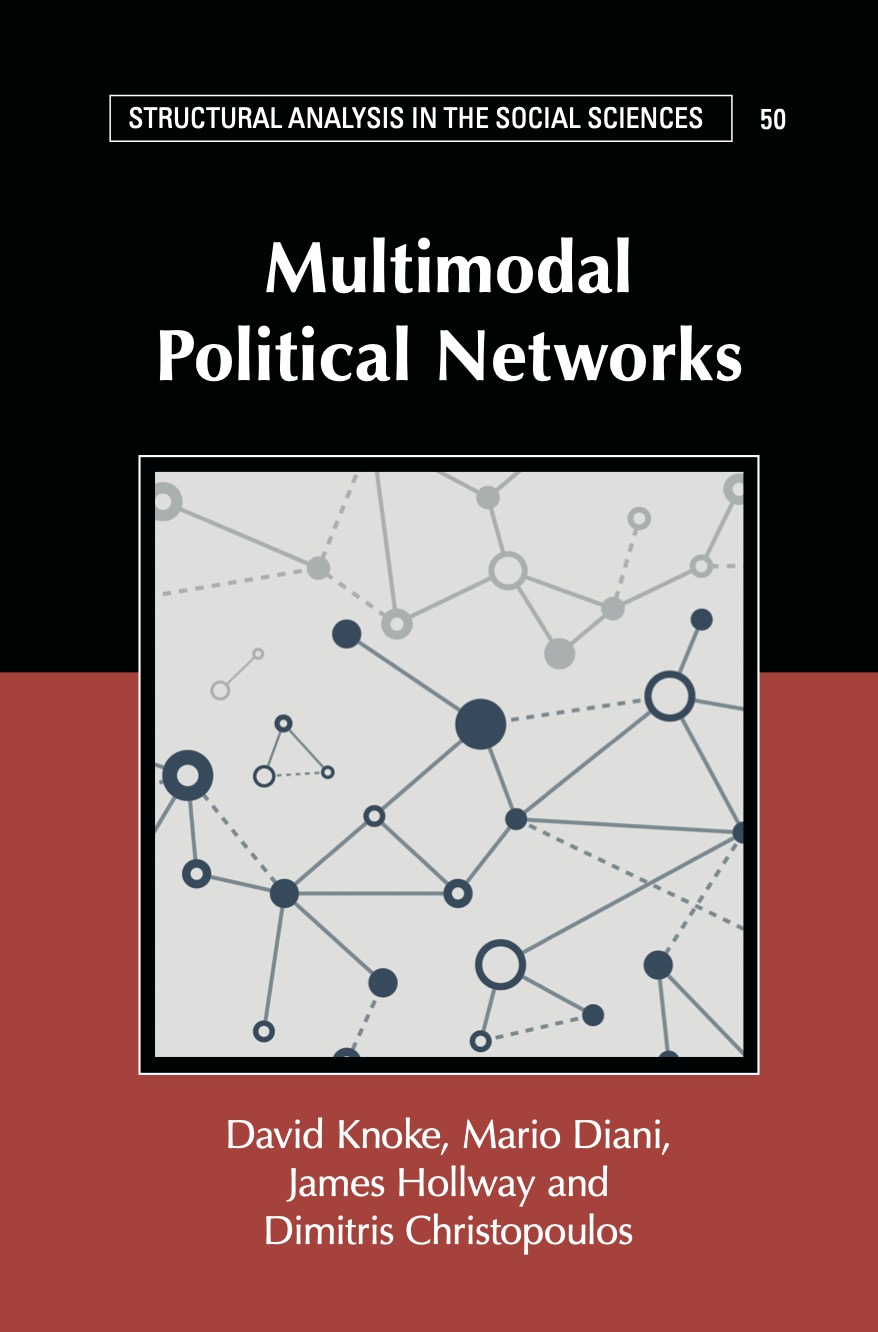

Most commonly used R packages available for network analysis, such as
{igraph} or {sna}, are mainly oriented around
directed or undirected one-mode networks. But researchers are
increasingly interested in analysing multimodal (one-, two-, or
three-mode), multilevel (connected multimodal networks), or multilayer
(multiplex or signed) networks. Existing procedures typically involve
‘projecting’ them into one-mode networks so that they can be used with
those tools, but thereby potentially losing important structural
information, or require one or more other specific packages. Translating
between packages various syntaxes and expectations can introduce
significant transaction costs though, driving confusion, inefficiencies,
and errors. {migraph} includes functions for inferential
network analysis.
{migraph} builds upon {manynet} to
offer smart solutions to these problems. Since it is based on
{manynet}, every function works for any compatible network
format - from base R matrices or edgelists as data frames, {igraph}, {network}, or {tidygraph}
objects. This means it is compatible with your existing workflow, is
extensible by other packages, and uses the most efficient algorithm
available for each task.

The package is intended as a software companion to the book:
David Knoke, Mario Diani, James Hollway, and Dimitris Christopoulos (2021) Multimodal Political Networks. Cambridge University Press: Cambridge.
Most datasets used in the book are included in this package, and
{manynet} and {migraph} together implement
most methods discussed in the book. Since many of theses datasets and
routines are discussed and analysed more there, if you like the
package(s) please check out the book, and vice versa.
{migraph} allows the testing of {manynet}
measures against conditional uniform graph (CUG) or quadratic assignment
procedure (QAP) distributions using:
test_configuration(), test_distribution(),
test_fit(), test_gof(),
test_permutation(), test_random()
Hypotheses can also be tested within multivariate models via multiple (linear or logistic) regression QAP:
network_reg()
{migraph} is the only package that offers these testing
frameworks for two-mode networks as well as one-mode networks.
Together with {manynet}, this package makes available
interactive {learnr} tutorials. The easiest way to access
the tutorials is via run_tute(). If no tutorial name is
provided, the function will return a list of tutorials currently
available in either package:
library(migraph)
run_tute()
#> Checking tutorials in stocnet packages ■■■■■■■■■■■■■■■■ 50% | …
#> # A tibble: 9 × 3
#> package name title
#> <chr> <chr> <chr>
#> 1 manynet tutorial0 Intro to R
#> 2 manynet tutorial1 Data
#> 3 manynet tutorial2 Visualisation
#> 4 manynet tutorial3 Centrality
#> 5 manynet tutorial4 Cohesion and Community
#> 6 manynet tutorial5 Position and Equivalence
#> 7 manynet tutorial6 Topology and Resilience
#> 8 manynet tutorial7 Diffusion and Learning
#> 9 migraph tutorial8 Diversity and Regression
#> ℹ You can run one of these tutorials by typing e.g `run_tute('tutorial1')` or `run_tute('Data')` into the console.
# run_tute("tutorial5")For more details on the {learnr} package, see here.
The easiest way to install the latest stable version of
{migraph} is via CRAN. Simply open the R console and
enter:1
install.packages('migraph')
You can then begin to use {migraph} by loading the
package:
library(migraph)
This will load any required packages and make the data contained within the package available.
{migraph} relies on some packages only for one or two
rather specific functions. By default these are not installed together
with {migraph}, but we make it easy to install them as and
when needed for the first time with a console prompt. If you would
prefer not to encounter these prompts, or plan to use the package for
the first time through tutorials, you can make sure all the dependencies
are installed with:
install.packages('migraph', dependencies = TRUE)
For the latest development version, for slightly earlier access to new features or for testing, you may wish to download and install the binaries from Github or install from source locally.
The latest binary releases for all major OSes – Windows, Mac, and Linux – can be found here. Download the appropriate binary for your operating system, and install using an adapted version of the following commands:
install.packages("~/Downloads/migraph_winOS.zip", repos = NULL)install.packages("~/Downloads/migraph_macOS.tgz", repos = NULL)install.packages("~/Downloads/migraph_linuxOS.tar.gz", repos = NULL)To install from source the latest main version of
{migraph} from Github, please install the
{remotes} or {devtools} package from CRAN and
then:
remotes::install_github("stocnet/migraph")remotes::install_github("stocnet/migraph@develop")Those using Mac computers may also install using Macports:
sudo port install R-migraph
{migraph} draws together, updates, and builds upon many
functions currently available in other excellent R packages such as {bipartite},
{multinet},
{tnet}, and {xUCINET}.
Most work on this package has been funded by the Swiss National Science Foundation (SNSF) Grant Number 188976: “Power and Networks and the Rate of Change in Institutional Complexes” (PANARCHIC).
Macs with Macports installed may also install from the command line using Macports.↩︎